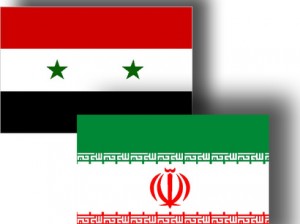 IRAN will defend the Syrian government to the end to preserve an "axis of resistance" to Israel and the West, its ambassador in Damascus has warned.
IRAN will defend the Syrian government to the end to preserve an "axis of resistance" to Israel and the West, its ambassador in Damascus has warned.It is already providing military and security advice to Syrian forces caught in an "impasse" with rebels fighting to oust President Bashar al-Assad, said ambassador Mohammad Reza Raouf Sheibani.
He denied US reports that Iran had supplied weapons and combat troops, but did not rule out further support if Syria asked for it. "We believe that we have to defend the axis of resistance, which must remain strong and solid," Sheibani said in an interview.
His warning was reinforced when an aide to the supreme leader, Ayatollah Ali Khamenei, said Iran would respond to any attack on Syria as if it were itself under fire.
"Syria has a very basic and key role in the region for promoting firm policies of resistance," said Ali Akbar Velayati, the aide. "For this reason, an attack on Syria would be considered an attack on Iran and Iran's allies."
Iran, which faces the threat of possible airstrikes against its nuclear programme by Israel, has been a steadfast ally to Mr Assad during a war that is thought to have claimed 60,000 lives and displaced an estimated 3.2 million people.
On Saturday, rebel positions on the outskirts of Damascus, the capital, were shelled continuously. The booms of artillery fire echoed across the city, punctuated by MiG fighters roaring through the skies.
The Shia leaders of Iran and Syria have condemned support for the rebels from Sunni-led countries such as Saudi Arabia and Qatar, which are believed to be arming and financing foreign jihadist elements of the opposition.
The ambassador claimed the presence of trained, armed extremists on the Mediterranean would eventually have serious consequences for Europe. The jihadists in Syria would turn against the West, he said.
Sheibani urged British Prime Minister David Cameron, US President Barack Obama and Turkish Prime Minister Recep Tayyip Erdogan to stay out of the conflict.
"No leader in the world has the right to say what should or should not happen in Syria," he said. "Such decisions are solely the right of the Syrian people."
Russia urged the international community last week to let Iran play a positive role in ending the violence. "We should involve the Iranians rather than isolate them," said deputy foreign minister Gennady Gatilov.
The ambassador said Iran had engaged in talks with opposition groups, but some seemed convinced only military action would end the crisis.
The conflict's impact on life in Damascus is increasingly felt. Last year the inhabitants jumped at the sound of an explosion. Now they no longer flinch. Gone are the days when streets and souks remained open until the early morning. Most people lock their doors when the sun goes down, preferring the safety of their homes to the risk of being kidnapped or the hassle of a checkpoint.
Although food is plentiful in the capital - for those who can afford the rising prices - a fuel shortage has left only a few garages to supply the city, and drivers begin queuing at 6am. Iran is to allow imports of Syrian produce worth up to $US1 billion (to boost the economy. It has also agreed to give Syrian importers $US1bn of credit to buy Iranian supplies.
The ambassador said only dialogue would resolve a conflict in which neither side is making clear progress. French Foreign Minister Laurent Fabius, who predicted last month that the end for Mr Assad was near, admitted last week: "Things are not moving."
By The Australian
The Iran Project is not responsible for the content of quoted articles.










